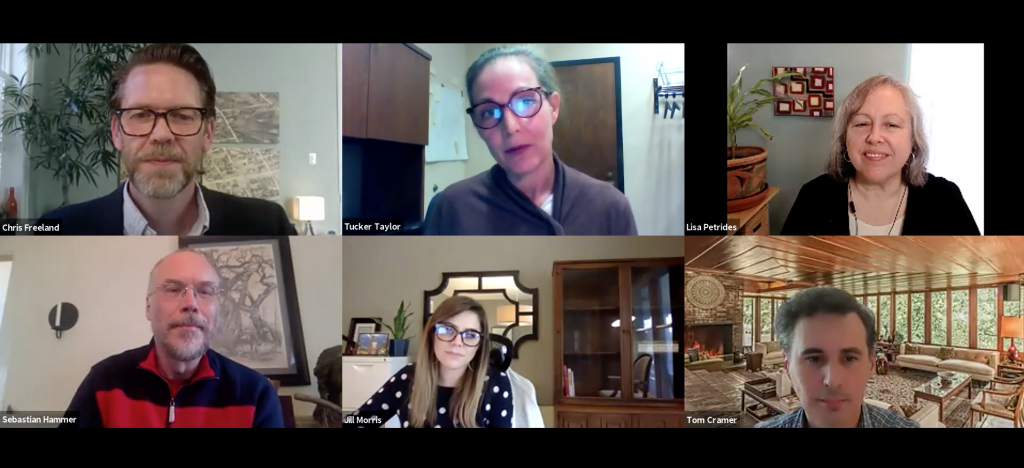
For many librarians, the global pandemic has pushed Controlled Digital Lending from sounding like a promising idea to becoming an important way of serving their patrons. Unable to physically check out books, a growing number of institutions have embraced CDL as a safe way to connect their readers with needed materials.
Librarians, educators, and technologists discussed the value and challenge of CDL for their communities at the second session of the 2020 Library Leaders Forum held online October 13. Video of the full session is now available.
“The Internet Archive has been operating a Controlled Digital Lending environment for more than nine years and we now have more than 80 libraries along with us,” said Chris Freeland, director of Open Libraries, who moderated the panel. “We are really thrilled. There is strength in community.”
With limited access to their collections during COVID-19, librarians on the frontlines shared their frustration getting digital materials to remote learners. Many publishers were willing to give free access to their content in the spring, but that didn’t last, said Tucker Taylor, head of circulation at University of South Carolina.
“We have a large textbook collection that we spent a lot of student tuition money and our tax dollars on. We wanted to continue to provide access to that,” said Taylor, noting that vendors refused to sell the library ebooks.
The library began to build its own ebook platform and ended up partnering with HathiTrust, a membership-based digital library. It provided emergency access to books the library owned in print — one book in, one book out, said Taylor.
“We are team players. We wanted to do the right thing,” said Taylor of the controlled lending practice — a less than perfect solution, but a way to get the content the library owns in the hands of students in need. “I’m a librarian. I want to check things in and out. So, it feels reasonable to me that I should be able to do online checkout.”
At Stanford University, Tom Cramer, chief technology strategist, assistant university librarian and director of digital library system and services, said the campus closure in March left students and researchers without access to millions of books in the library stacks.
“That’s why we are in Controlled Digital Lending. We were aware of it beforehand, but this pandemic has made us acutely aware of the need and opportunity,” said Cramer, who suggested libraries have been too conservative about copyright law and the exceptions it provides libraries to better serve their patrons.
The panelists also mentioned how CDL can allow libraries to offer books that are out of print to the public, access to readers with disabilities and fragile collections that cannot circulate. It’s also an environmentally friendly practice that keeps items from having to be physically shipped for interlibrary loans.
With the current system, the needs of patrons are not being met and libraries should share resources to develop scalable solutions, said Jill Morris, executive director of Pennsylvania Academic Library Consortium, Inc. She heads the steering committee for Project ReShare (which the Internet Archive recently joined) that is working on innovative open source tools for libraries.
Another member of the project, Sebastian Hammer, co-founder and president of Index Data, spoke on the panel about the promise of technology in helping libraries improve services to patrons. Cramer of Stanford suggested interoperability was a high priority in creating a robust system for the future and the group agreed that authors and publishers should also be part of the conversation.
Collaboration is key, said Lisa Petrides, founder and chief executive officer of the Institute for the Study of Knowledge Management in Education.
“We are trying to change how a system works,” she says, which involves working across all stakeholder groups and changing policy. “It’s about access and equity at its core.”
So, the library began to build its own ebook platform a membership-based one right? Can you elaborate how a gated (membership) content can provide emergency services? I think that content should be… a free access.
thanks for share CDL system informstion. its first time to i sound it
Pingback: Library Leaders Forum: how to empower communities affected by COVID-19 - Internet Archive Blogs